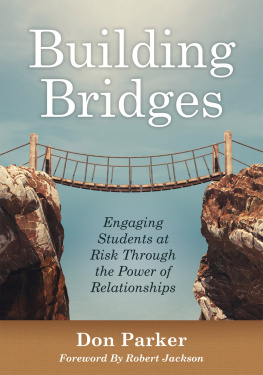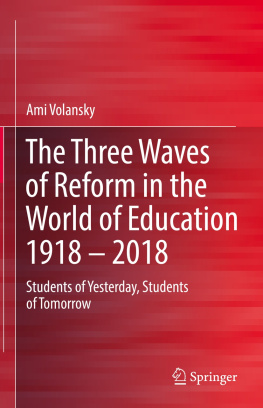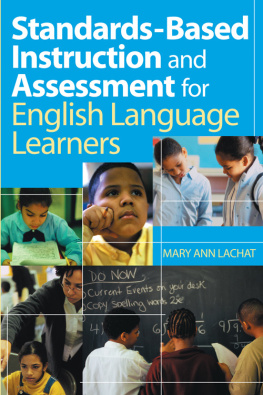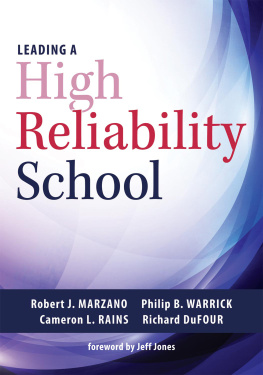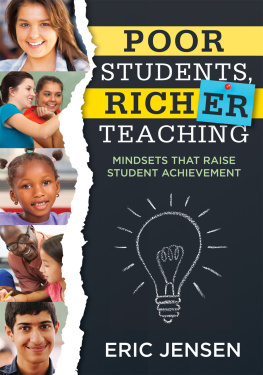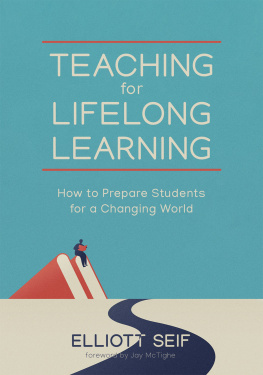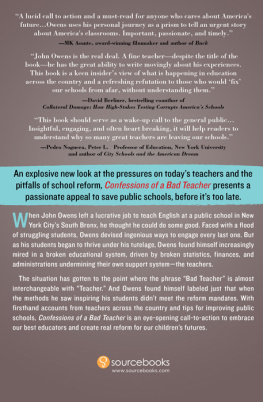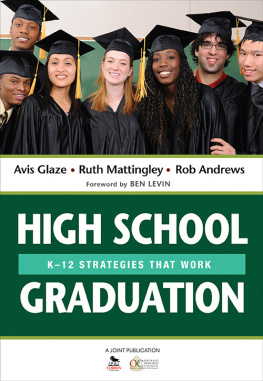Thank you for downloading this AMACOM eBook.
Sign up for our newsletter, AMACOM BookAlert , and receive special offers, access to free chapter downloads, and info on the latest new releases from AMACOM, the book publishing division of American Management Association.
To sign up, visit our website: www.amacombooks.org

LEARNING FOR
LIFE
How Continuous Education
Will Keep Us Competitive in
the Global Knowledge Economy
Jason Wingard and Michelle LaPointe

American Management Association
New York Atlanta Brussels Chicago Mexico City
San Francisco Shanghai Tokyo Toronto Washington, D.C.
CONTENTS
by John Fallon
Michelle LaPointe and Jason Wingard
Andreas Schleicher
Edward Verrier
Twinkle Morgan, Calvin Hadley, and Mark Rigdon
Gilbert J.B. Probst and Eric S. Roland
Carole Cowan and Michelle LaPointe
Murray M. Dalziel
Elizabeth Amato
Troy Vincent
Bev Dribin
Rick Gross
Jeffrey Saltz and Jennifer McDermott
Scott Ralls
Saroya Friedman-Gonzalez
Corey Donahue and Gay Clyburn
Melissa Howell
Pete Butler
Nancy Hoffman
Ursula Renold
Michelle LaPointe and Jason Wingard
Jason Wingard and Michelle LaPointe
by Mark Goulston
FOREWORD
I believe that the key ingredient to corporate success is human capital. Global companies, across sectors and across industries, depend on the quality and preparedness of their people to produce leading-edge products and services that result in competitive advantage in an ever-changing marketplace. In recent years, the American labor market has failed to source an adequately skilled workforce to satisfy these changing needs. Our collective education-to-work system in this country is in transition, and there is an urgent need for change.
Throughout my career, I have recognized and appreciated the benefit of human capital and consistently invested in a wide range of development initiatives. At Pearson, I have continued our long-standing tradition of supporting workforce development initiatives. Through a number of programs, our executive team is strategically committed to partnering with community and educational organizations to equip our employees with the requisite skills and competencies to do their jobs at an optimum level. In addition to developing the skills of our employees, we want to contribute to the development of a local, regional, and national system that leverages multiple partners in pursuit of a structure that is better equipped to prepare the workers for tomorrow. For example, in 2012, Pearson partnered with the Kentucky Community and Technical College System (KCTCS) to change the way adult learners in Kentucky access educational resources and invest in their academic futures. The goal was to revolutionize KCTCSs already successful Learn on Demand (LOD) program, using Pearsons technology (in particular our MyLab platform) to facilitate increased competency-based learning opportunities. Through this adaptable and customizable curriculum, students now have an opportunity to obtain workforce skills and earn their academic credentials more quickly while remaining focused on genuine learningand all at a lower cost. Through this program, we are pioneering a new precedent for the responsibility and role of a public company in collaboration with a broader system of partners committed to helping people successfully skill-up and transition in todays economic realities.
This handbook clearly and proactively articulates the changing environment and market context facing todays businesses and related workforce. It highlights the imminent challenges that dictate success or failure and establishes an aggressive call-to-action for organizations to work together to create a lifelong learning system that is responsive and sustainable. The profiles of successful models provide insights into best practice approaches that can be leveraged for replication and further enhancement.
Jason Wingard and Michelle LaPointe are leading scholars in the areas of professional education, lifelong learning, and policy development. Their collective research and practical experiences have enabled them to develop a book that sounds the alarm on the universal problem, demonstrates key components of potential success, and offers a guiding framework as a solution for change. Learning for Life is a handbook for lifelong learning that will help employees and employers alike bridge the gap between relevant education needs and contemporary skills demands.
John Fallon
CEO, Pearson
PREFACE
Shift to a Knowledge Economy
The economy has changed quickly and significantly in recent decades. However, our understanding and response to the shifting economic context is still rooted in the mid20th century. In the 1950s and 1960s, it was possible to sustain a career and support a family with semi-skilled factory work. But today, even if that factory worker has specialized skills to troubleshoot an automated assembly line, there are fewer and fewer well-paying manufacturing jobs available.
In the past 50 years, the United States economy has dramatically decreased dependence on manufacturing. In 1960, manufacturing was responsible for roughly one-quarter of the gross domestic product (GDP). Today, manufacturing has decreased to 10% of GDP (). During the same time period, professional services increased from 6% of GDP to nearly 20%. Professional services include the legal field, business consulting, and scientific and technical consultingall fields that require considerable education. The shift from an industrial economy to a knowledge economy has implications for workforce availability and readiness.
In the contemporary knowledge economy, individuals and companies alike are constantly adjusting to new tools, new strategies, and new norms. Regardless of the field, one can no longer escape the need to adapt and apply new skills at an ever-increasing rate of change. Today, even assembly lines are complex, high-tech operations and essential employees continuously train to keep up with computer-driven systems.
Despite the labor shift in the economy over the last decades, nearly half of the current workforce has no education beyond high school (). Even with years of schooling beyond high school and preparatory training for entry into a field, workers in all occupations are now expected to take on increasingly more skilled positions throughout the trajectory of their careers. So, whether to maintain a job or reenter the workforce, continuous retraining for new skills is critical for occupational readiness and success. Lifelong learning is an essential component of the new economy.
Exhibit P-1. Value-added to GDP by sector, 1960.
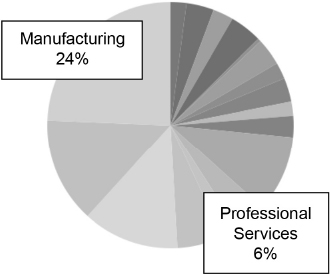
Source: U.S. Department of Commerce, Bureau of Economic Analysis.
Exhibit P-2. Value-added to GDP by sector, 2010.
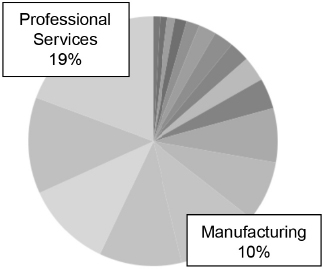
Next page

